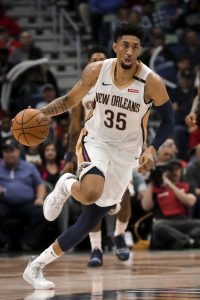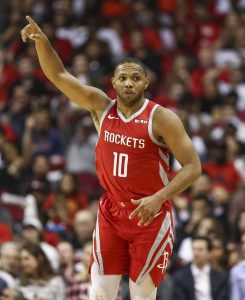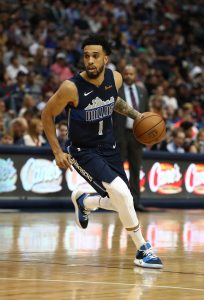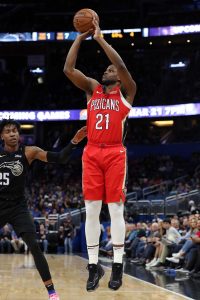The majority of the NBA players who are currently on non-guaranteed contracts won’t have their salaries for 2019/20 become fully guaranteed until January 10. That’s the league-wide salary guarantee date and the default deadline that applies to players who haven’t negotiated an earlier salary guarantee date.
Still, some players did negotiate an earlier trigger date, and the majority of those deadlines will arrive in October. At least a dozen players around the NBA are believed to have partial or full guarantees that will go into effect in October.
Now, it’s worth noting that salary guarantee dates are somewhat malleable. If the player’s camp agrees, a team can quietly move that deadline back, giving the club more time to make a decision on whether or not to fully invest in its player for the 2019/20 season. The player doesn’t necessarily have to agree, but he may be on board with postponing that deadline if the alternative is being waived and receiving none of his salary.
Most of our information related to salary guarantee dates is coming from the salary database at Basketball Insiders, and BI hasn’t published all the details on the latest signings from around the NBA yet. In other words, there could be a few more recently-signed players who have October salary guarantee dates.
For now though, these are the 12 players believed to have salary guarantee dates coming up next month:
Full guarantees:
- Ivan Rabb (Grizzlies): Partial guarantee of $371,758 increases to full guarantee of $1,618,520 salary if not waived by October 19.
- Chris Boucher (Raptors): Partial guarantee of $125,000 increases to full guarantee of $1,588,231 salary if not waived by first day of regular season.
- Malcolm Miller (Raptors): Partial guarantee of $150,000 increases to full guarantee of $1,588,231 salary if not waived by first day of regular season.
- Duncan Robinson (Heat): Partial guarantee of $1,000,000 increases to full guarantee of $1,416,852 salary if not waived by first day of regular season.
- Kenrich Williams (Pelicans): Partial guarantee of $200,000 increases to full guarantee of $1,416,852 salary if not waived by first day of regular season.
Partial guarantees:
 Christian Wood (Pistons): $1,645,357 salary becomes partially guaranteed ($822,679) if not waived before first day of regular season.
Christian Wood (Pistons): $1,645,357 salary becomes partially guaranteed ($822,679) if not waived before first day of regular season.- Trey Burke (Sixers): Partial guarantee of $405,000 increases to $810,000 if not waived by first day of regular season (full salary is $2,028,594).
- Jordan McRae (Wizards): Partial guarantee of $400,000 increases to $600,000 if not waived by first day of regular season (full salary is $1,645,357).
- Dragan Bender (Bucks): Partial guarantee of $300,000 increases to $600,000 if not waived by first day of regular season (full salary is $1,678,854).
- Ben McLemore (Rockets): Partial guarantee of $50,000 increases to $500,000 if not waived by first day of regular season (full salary is $2,028,594).
- Kendrick Nunn (Heat): Partial guarantee of $150,000 increases to $450,000 if not waived by first day of regular season (full salary is $1,416,852).
- William Howard (Jazz): Partial guarantee of $50,000 increases to $250,000 if not waived by first day of regular season (full salary is $898,310).
Photo courtesy of USA Today Sports Images.


